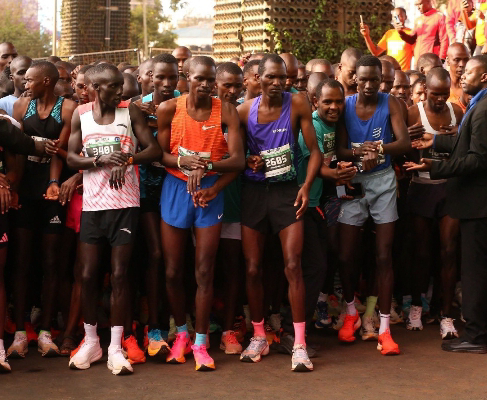The government, academia, and the private sector have been challenged to work together to address the policy and administrative hurdles experienced by Micro,Small and Medium Enterprises (MSMEs) in the digital space.In a bid to bolster the role of Micro Small and Medium Enterprises (MSMEs) within Kenya's rapidly evolving digital economy.
The Centre for International Private
Enterprise (CIPE), in partnership with the Kenya Private Sector Alliance (KEPSA) Foundation presented research findings of the MSME Digital Economy Survey which was launched in December 2022 as well as to offer policy recommendations in comparison with the government’s progress on the digital economy manifesto commitments and the ICT masterplan.
Speaking during the workshop on the digital economy dialogue hosted by CIPE and
KEPSA Foundation, CIPE Kenya Country Director Ben Kiragu said that cybersecurity, stiff competition, and the cost of doing business are the primary challenges MSMEs face when trying to digitize their operations.He said key stakeholders from the government, industry, and academia must strategically outline the roadmap to address these challenges that are impeding
MSME integration into the digital landscape.
“Empowering MSMEs in the digital economy requires a targeted approach that
addresses their unique challenges and needs. Without a clear focus on MSMEs, the
broader policy dialogue on the digital economy risks leaving behind the very
businesses that are essential to economic growth and prosperity,” Mr. Kiragu said.
Cybersecurity risk has been predominant during the post-COVID period due to the increased uptake of digital tools for payment and procurement of goods. The cost implications and awareness creation about cybersecurity make it difficult for MSMEs to fight against cyber threats.
The digital economy has become a significant driver of economic growth in Kenya,with projections indicating that it will contribute 9.24% of the country's GDP by 2025.
The country's ICT sector has grown by an average of 10.8% annually since 2016, and Kenya is now one of Africa's leading digital economies. The National ICT Policy aims to grow the sector's contribution to the digital and traditional economies to 10% of GDP.However, there are challenges to overcome. Kenya faces a significant digital divide, with 44% of the urban population having access to the internet compared to 17% in rural areas. Widespread gaps in basic digital skills limit the wider usage and application of digital tools and services, while gaps in advanced digital skills limit business development.
To accelerate the growth of the digital economy, various challenges need to be addressed to embrace digital inclusion; these include cyber security, internet access and equipment costs and digital skills development or awareness.
The finding recommends the following initiatives:
1. Tailored digital training, skills development programs, and extensive
awareness campaigns for MSMEs to leverage the growth and efficiency
opportunities associated with online business.
2. The government prioritizes affordable internet access as a fundamental right
for all citizens, including MSMEs, through taxation, subsidies, and operational
efficiency to drive down the cost of equipment for MSEs in the digital
economy.
3. The government promotes a culture of cyber hygiene among MSEs in the
digital economy, while the private sector is encouraged to enhance the establishment and growth of start-ups in local and global hubs that innovate cyber-security solutions for MSEs. The academia is challenged to train and
undertake MSE-focused research on cyber-security.


